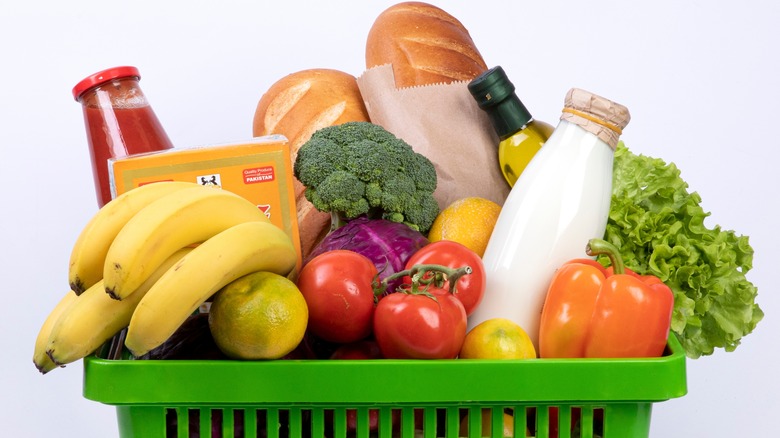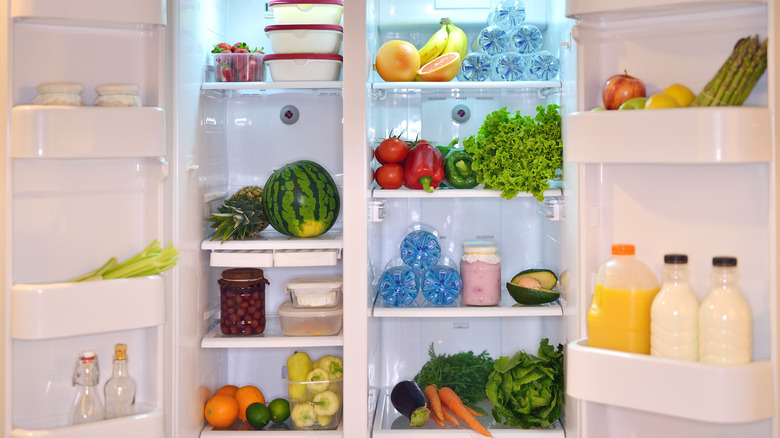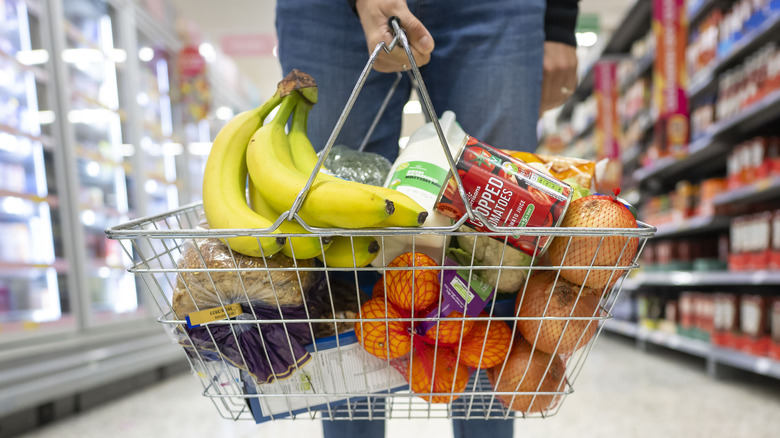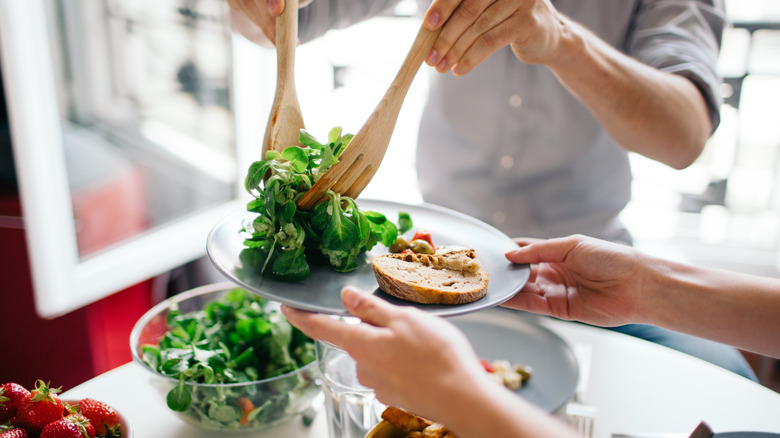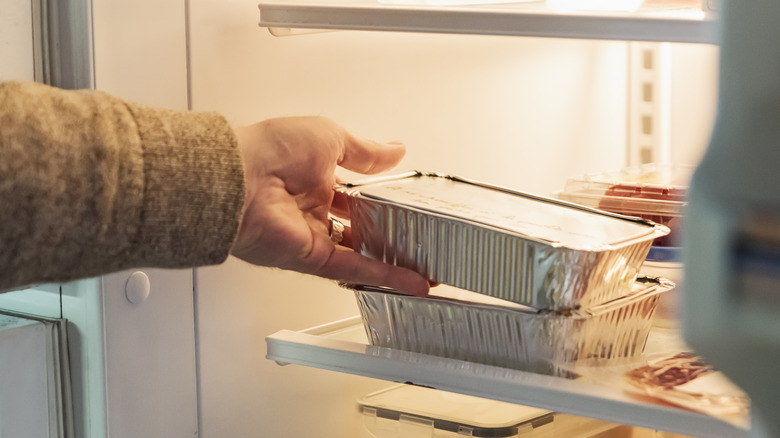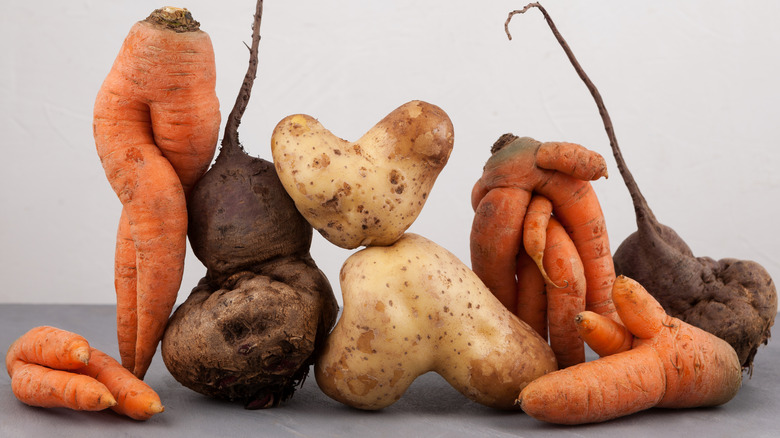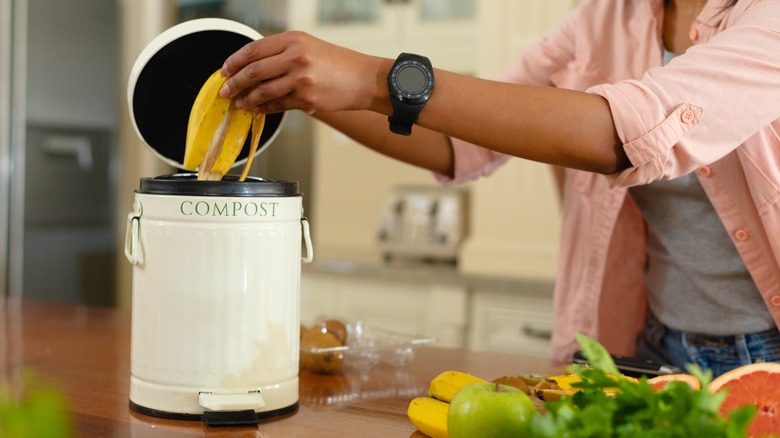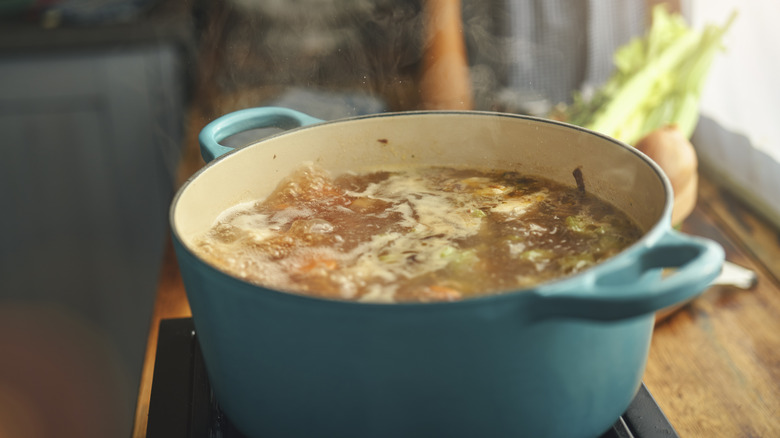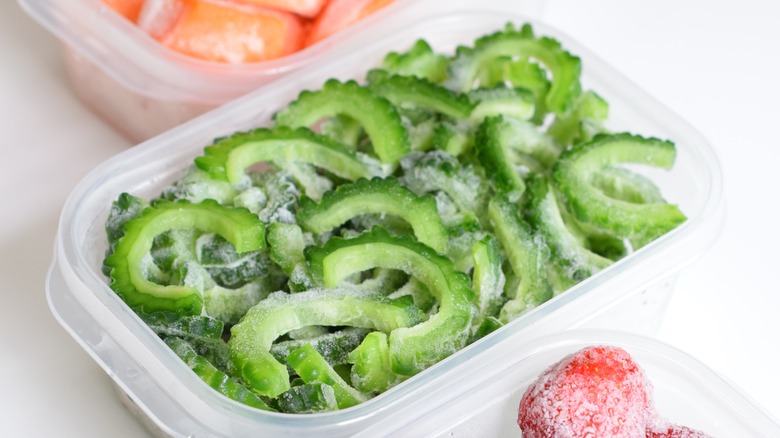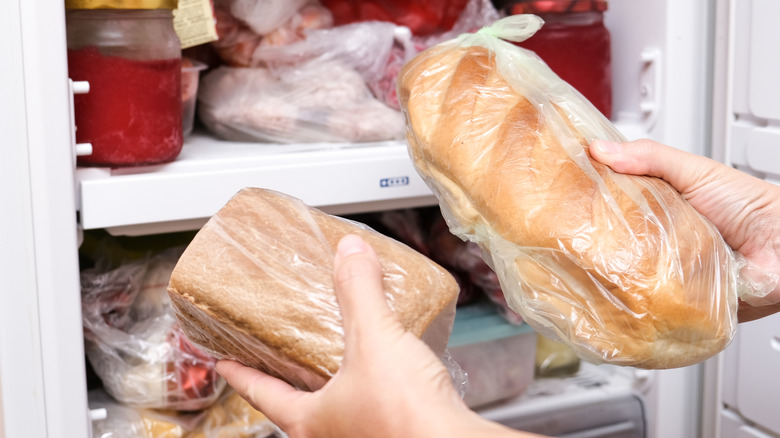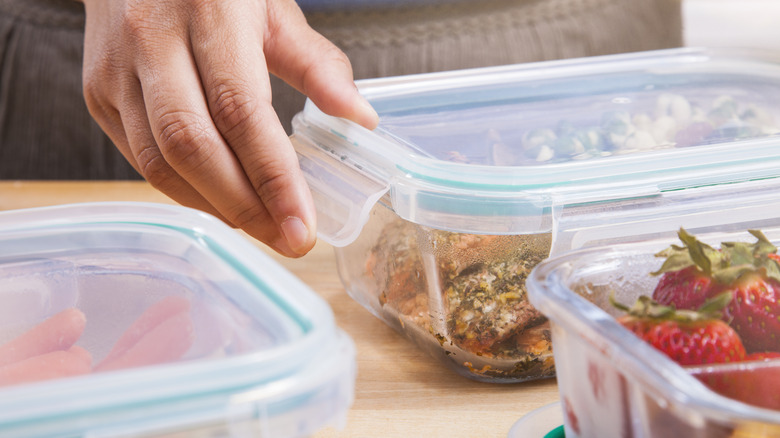10 Easy Tips To Reduce Food Waste
There are many easy ways to reduce food waste, and lots of good reasons to do so — ranging from saving some cash to avoiding that dreaded vegetable drawer. If you choose to compost, you have a chance to create better soil to use in your garden, and you may be able to reduce greenhouse gas emissions as well.
When we waste food, we waste both our own money (an average of $1,800 per year for a family of four, according to 2017 data from the National Resources Defense Council) and the natural resources used to create that food. Plus, we needlessly add usable food to landfills. Luckily, there are so many ways to cut down on food waste, helping out both your wallet and the environment. Have you thought about buying items in bulk, changing out your storage containers, or purchasing "ugly" fruit? Try one or two changes, or go full-on Captain Planet — the choice is yours for tackling food waste!
Organize your fridge
Just like we sift through our books and our clothes, it's important to take stock of what's in our fridges. This will help you avoid buying that third bottle of ranch dressing when you already have several on the shelves (one nearly expired, one years old!). Get rid of the produce and condiments that have gone bad (RIP), and place those that are nearing expiration within sight, so that you remember to use them.
Be realistic when shopping for produce
If you find you routinely throw out slimy greens and moldy fruit, you might be a little overambitious with your produce purchases. Buying in bulk makes sense for canned and dry goods that last a long time, but take a look at your produce cooking and eating habits and try to plan your shopping list accordingly. If your weekly routine can shift a bit, try shopping European-style by taking shorter, more frequent trips to the store to pick up what you need for the next day or two.
Be sure to properly store the fruits and vegetables that you buy so they last longer in the fridge. This means keeping certain produce apart, maintaining a certain fridge temperature, and avoiding precut produce that will spoil faster.
Portion your plate
We're adults; we know how much we can eat in one sitting! Take only what you plan to eat when serving yourself so that you don't end up scraping good food into the garbage can. And this goes double if you're a dinner guest at someone else's home — the host won't want to save leftovers from your plate, so anything you don't eat will certainly become trash. Remember, you can always go back for seconds, and anything uneaten in the serving dish will make for easy future leftover meals.
When putting leftovers in the fridge, be sure to avoid making common storage mistakes that can ruin your food — like storing food in the wrong containers or leaving food uncovered in the fridge.
Get doggie bags from restaurants
Always ask for to-go containers for restaurant leftovers. Of course you'll eat that leftover pizza later, but even leftover soup or half a sandwich could be a good in-between-meals snack in the next few days. And maybe you can use that rice as the ready-to-go base of your next home-cooked meal, or rescue the bread in the restaurant bread basket. Even if you're full now, think of how leftovers can stave off that next grocery store trip!
Buy ugly produce
Programs like Imperfect Produce work to address the fact that $408 billion worth of food is wasted every year. This type of waste occurs because most grocery stores don't want to source and sell extra-bumpy potatoes, tiny kiwis, or oddly-shaped peppers — historically, consumers don't buy these, and they get thrown away. By purchasing imperfect fruits and vegetables, you save them from the garbage, and if you're lucky enough to live near a grocery store with a discount produce bin, you'll save some money, too!
Compost egg shells, rinds, peels, and more
Egg shells, corn cobs, melon rinds, oh my! Many parts of food cannot be creatively worked into new dishes, and for these times, there's composting! Instead of adding all these leftover food parts to the trash, and ultimately, to landfills, composting turns it all into nutrient-rich soil. Some foods you'll want to avoid composting are meat, fish, oils, and dairy — and of course you'll want to be sure not to compost any item that contains plastics or pesticides.
If you're ready to go all in on composting, consider investing in the Mill Food Recycler. Though it's pricey, it's a good alternative to potentially stinky countertop compost bins.
Save food scraps for stock (or pickle 'em!)
Some of those food scraps are prime stock ingredients! Onion skins, garlic tips, herb stems, carrot tops — put all of these into a freezer bag, and when you've amassed a good amount, simmer them all in water for an hour (or a few), strain, and you've got a wonderful stock ready for soups and slow cooker recipes. Meat bones, cheese rinds, and shrimp peels are also excellent stock ingredients — but avoid citrus rinds or ingredients that could take over the milder flavors.
You can also pickle some things you'd normally compost, like watermelon rinds.
Freeze any food you won't eat in the next couple of days
Before you put that big pot of beef chili in the fridge, think: is my family going to eat all of this before it goes bad? Store what you will realistically eat in the next few days in the fridge, and put the rest away in the freezer — you'll get less fatigued by the same dish every day for a week, and you'll have ready-to-go meals when you defrost in a few weeks! Same goes for when you'll be going out of town; make sure to freeze fridge leftovers so that they don't go bad while you're away.
Refrigerate bread to prevent mold
This is a contentious topic — some people hate storing bread in the fridge, thinking it gets dry, while others go to the other extreme and keep bread in the freezer, toasting slices as needed. As someone who has lived in various apartments with warm kitchens, I can attest that refrigerating my bread has prevented many a moldy loaf, and I've noticed little to no change in texture and flavor. To each their own with this tip!
Equip yourself with items to make eliminating food waste easier (or more fun!)
Sometimes we have to admit to ourselves that we require a little retail therapy to push ourselves toward change. New gym clothes to work out more, fancy cleaning products to keep a tidier house. Juice more produce with a juicer, make preserves with a canning kit, and keep everything organized and ready to use with better storage containers! We recommend glass containers so the items in your fridge are easy to find and use promptly.
